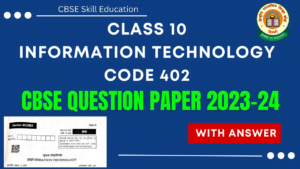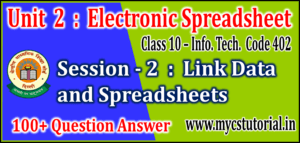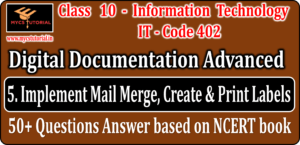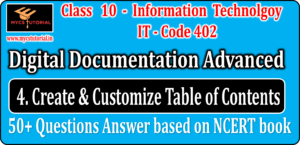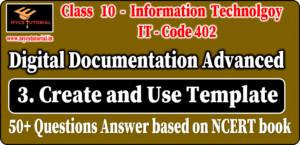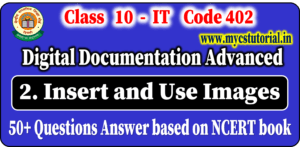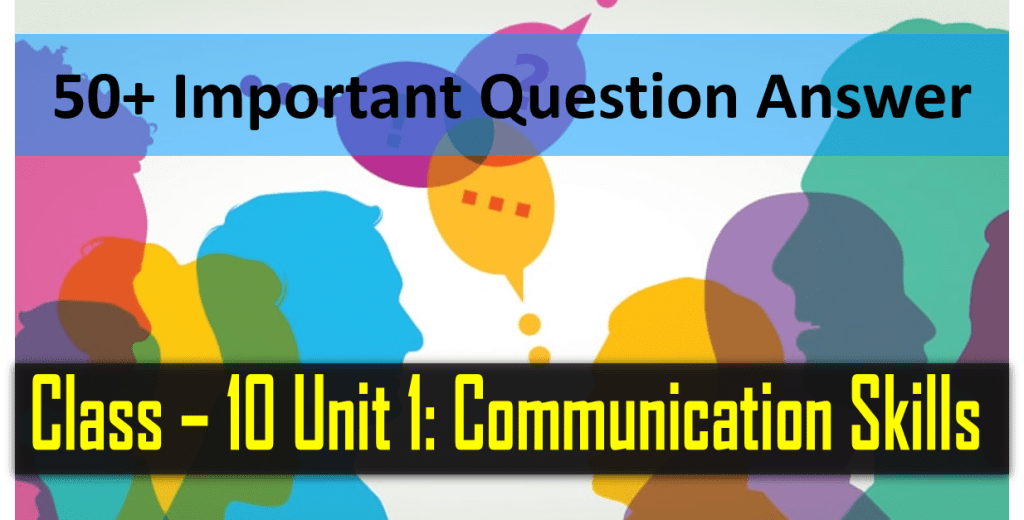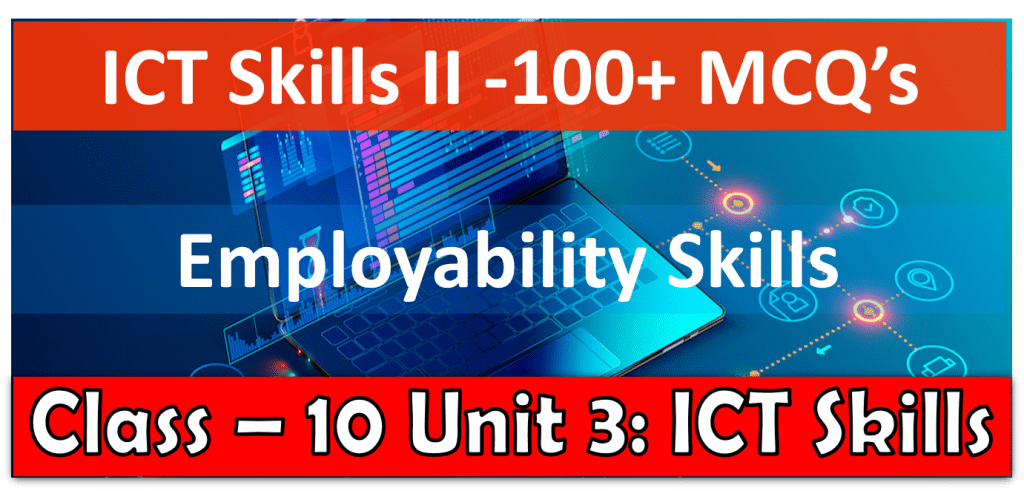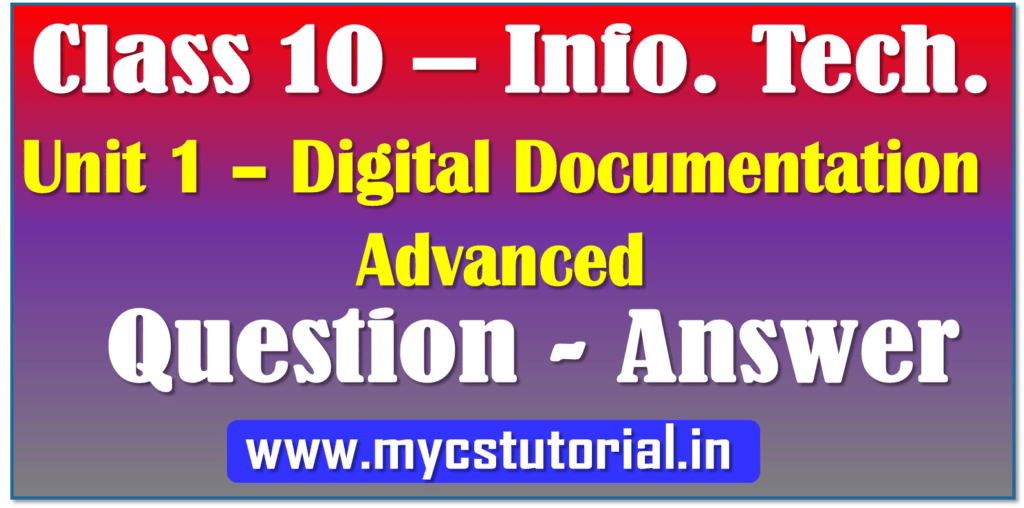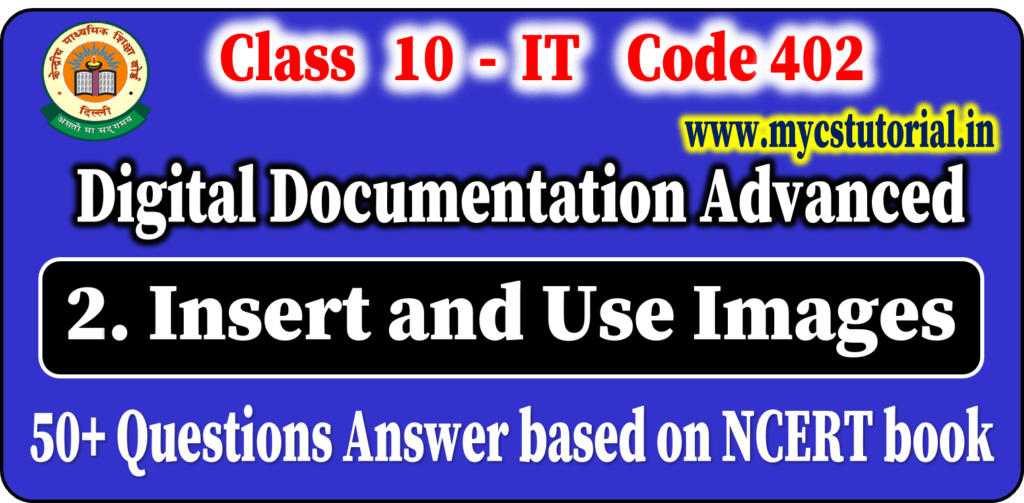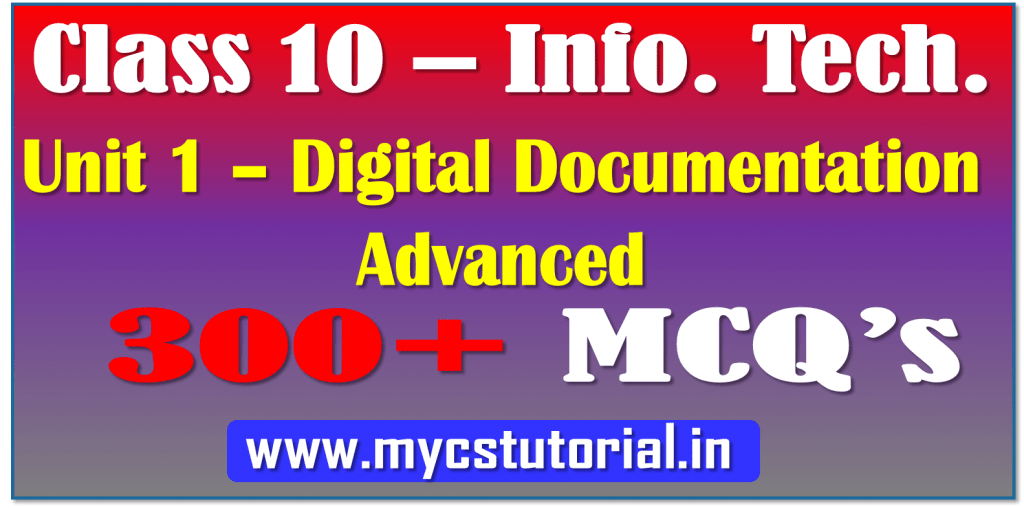PART – A: Unit 2:- Self Management Skills – II 50+ Question – Answer (including Sumita Arora exercise solutions)
Session 2: Working Independently
25. What is Independent working? [Sumita Arora]
Answer: Independent working refers to taking full responsibility for the work and to yourself accountable for it. For example, self-learning, understanding & grasping a concept, doing self-regulated research, working on an independent project, etc.
26. What are the important points about Independent Working?
Answer: Important things about Independent working are:-
- You can take full responsibility for the work
- You make yourself accountable for it.
- You are ready to do unsupervised work i.e. no one is going to monitor you.
- You are capable to complete the work on time and under the budget.
27. What is teamwork?
Answer: Teamwork refers to the work in which we are working with other members i.e. team members. To work with a team you must have a team spirit, the art of working in teams, etc. The quality of being a team player is indeed excellent quality.
28. What are the advantages of Independent working? [Sumita Arora]
Answer: Advantages of Independent working are :-
- You do not need to depend on anyone else.
- You can work at your own pace.
- It is easier to concentrate.
- You are able to accomplish the task faster.
- Full credit / Full blame goes to you, in case of success/failure.
29. What qualities do independent workers have? [Sumita Arora]
Answer: To become a successful independent worker, these qualities are required.
(a) Self-Awareness, (b) Self-Motivation, and (c) Self-Regulation
30. What is the work style of Independent working? [Sumita Arora]
Answer: To be a successful and accomplished independent worker, you must develop the following work style –
- Be own supervisor
- Clear about objectives
- Take initiatives
- Full commitment
- Maintain work-life balances
- Takes constructive ownership of mistakes and errors.
- Good at stress management.
31. What action planning do you have to do as an Independent Worker?
Answer: An independent worker does the following action plans:-
Goal Setting:- Need to set the objectives like short terms, medium-term, and long-term.
Planning:- Need to prepare an action plan to accomplish short terms, medium-term and long-term objectives.
Timeline:- Needs to arrange the milestones, events, and actions in chronological order.
Time management – Priorities the tasks and sub-tasks. Identify which tasks can be done independently and which can be done with the help of others.
32. What is self-awareness?
Answer: Self-awareness is the full understanding of self without any bias. Full understanding in terms of
- strengths
- weakness
- interests
- abilities,
- attitudes, and
- biases
33. How can you check your self-awareness?
Answer: To check self-awareness, people consciously practice personal discovery and keenly analyze their actions and reactions. They ask the following questions from themselves –
- Do I have the required skill set?
- Do I need any external help to develop this skill set?
- Do I have excellent listening skills?
- Do I take the feedback and suggestions constructively?
- Am I self-motivated to complete this task?
34. What is self-motivation? [Sumita Arora]
Answer: Self-motivation is the ability to do things on your own without being told to do so. It is a fire within that lights our path and drives us to do and achieve something.
A self-motivated person does things for their own satisfaction. Only a self-motivated person achieves the desired results as he/she has real motivation.
35. What are the self-motivation techniques?
Answer: Self-motivation techniques are –
- Decide how much amount of work you will do each day.
- Visualize the desired outcome, so that you can work harder and better.
- Play up to your strengths and interests.
- Use some indicators to monitor your progress.
36. What is self-regulation? [Sumita Arora]
Answer: Self-regulation is the act of managing one’s thoughts and feelings to engage in goal-directed actions such as organizing, behaviour, controlling impulses, and solving problems constructively.
37. What are the requirements for self-regulation?
Answer: Self-regulation requires:-
- Awareness of own emotions and behavior.
- Willingness and willpower to regulate self.
- Efforts to regulate self.
- Exercise self-control.
38. What are the stress causal agents?
Answer: Stress causal agents are –
Mental – Students can be left overwhelmed if they are unable to handle their assignment submission deadlines and examination grades. High expectations from the self can leave one with chronic anxiety and stress.
Physical Growth – As children grow up, they may seek more independence, may become critically conscious of their looks, and have to cope up with hormonal changes. Issues related to the general well-being and health of an individual can lead to low self-esteem and cause stress.
Social – Discord amongst family members, peer pressure for doing things that children would generally avoid, maintaining balance in relationships amongst friends, and status show off may lead to stress at times.
Financial – Youngsters may have aspirational financial stress. This may be of becoming financially independent.
I tried my best to put all topics of Class 10 – Unit 2 : Self Management Skills – II in the form of question answer. You can feel that it is a just like a notes on these topics.
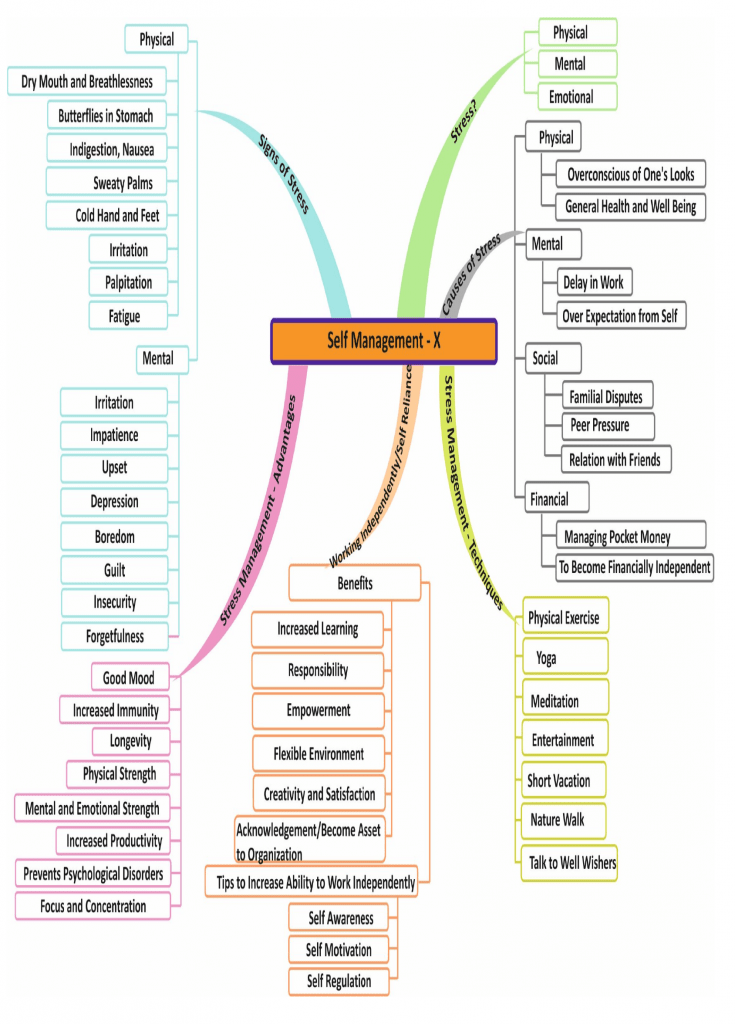
If you found or noticed any thing is given wrong, please give your suggestions. I am always welcomes your suggestions with my open heart.
Happy Learning !! Stay Home !! Stay Safe
Thanks
- Class 10 Information Technology Code 402 Question Paper 2024 Download Paper with Solution
- Class 10 Information Technology 402 CBSE Previous Year Question Bank and SQP
- Class 10 Information Technology 402 – Video Tutorial
- Class 10 IT Code 402 Electronic Spreadsheet Advanced Session 2 – Link Data and Spreadsheets Question Answer
- Class 10 IT 402 Unit 1 – Digital Documentation Advanced Session 5: Implement Mail Merge and Printing Labels Question and Answer
- Class 10 IT 402 Practical Activity for Practical File
- Class 10 IT 402 Unit 1 – Digital Documentation Advanced Session 4: Create and Customize Table of Contents Question and Answer
- Class 10 IT 402 Unit 1 – Digital Documentation Advanced Session 3: Create and Use Template Question and Answer
- Class 10 IT 402 Unit 1 – Digital Documentation Advanced Session 2: Insert and Use Images 50+ Que Ans
- Class 10 IT Code 402 Term 2 Board Question Paper Answer key
By Anjeev Kr Singh – Computer Science Educator
Published on : May 21, 2021 | Updated on : June 30, 2023

